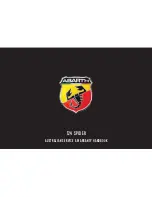
WARNING!
• Overloading of your tires is dangerous. Overloading can cause tire failure, affect
vehicle handling, and increase your stopping distance. Use tires of the recom-
mended load capacity for your vehicle. Never overload them.
• Improperly inflated tires are dangerous and can cause collisions. Under-
inflation increases tire flexing and can result in over-heating and tire failure.
Over-inflation reduces a tire’s ability to cushion shock. Objects on the road and
chuck holes can cause damage that results in tire failure. Unequal tire pressures
can cause steering problems. You could lose control of your vehicle. Over-
inflated or under-inflated tires can affect vehicle handling and can fail suddenly,
resulting in loss of vehicle control. Always drive with each tire inflated to the
recommended cold tire inflation pressure.
Tire And Loading Information Placard
This placard tells you important informa-
tion about the:
1. Number of people that can be carried
in the vehicle.
2. Total weight your vehicle can carry.
3. Tire size designed for your vehicle.
4. Cold tire inflation pressures for the
front, rear, and spare tires.
Loading
The vehicle maximum load on the tire must not exceed the load carrying capacity of
the tire on your vehicle. You will not exceed the tire's load carrying capacity if you
adhere to the loading conditions, tire size, and cold tire inflation pressures specified
on the Tire and Loading Information placard in “Vehicle Loading” in the “Starting
And Operating” section of the Owner’s Manual, or the Tire Information Supplement,
located in your Owner’s Information kit.
NOTE:
Under a maximum loaded vehicle condition, gross axle weight ratings (GAWRs) for
the front and rear axles must not be exceeded. Refer to “Vehicle Loading” in
“Starting And Operating” in the Owner’s Manual, or the Tire Information Supple-
ment, located in your Owner’s Information kit for further information on GAWRs,
vehicle loading, and trailer towing.
To determine the maximum loading conditions of your vehicle, locate the statement
“The combined weight of occupants and cargo should never exceed XXX kg or
XXX lbs” on the Tire and Loading Information placard. The combined weight of
occupants, cargo/luggage and trailer tongue weight (if applicable) should never
exceed the weight referenced here.
Tire And Loading Information Placard
M A I N T A I N I N G Y O U R V E H I C L E
243
Summary of Contents for CHASSIS CAB 3500 2017
Page 271: ...NOTES 269...
Page 272: ...NOTES 270...
Page 273: ...NOTES 271...
Page 274: ...NOTES 272...
















































